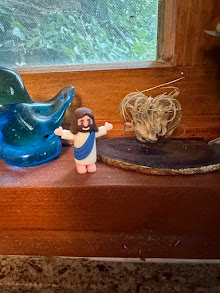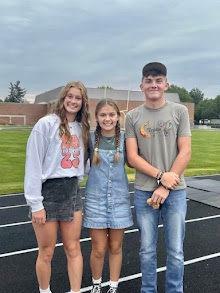Back to the first mistake. It wasn't underestimating the arguments or passion of the other side. We're well acquainted with the single-mindedness of those who denigrate our current food system. But we were not prepared for some of the tactics of the debate: the initial barrage of accusations without regard to accuracy or coherency or courtesy. Lesson one from the debate: if enough s*** is thrown, some of it will stick. You can't get everything answered at once; you cannot refute every clause, every charge, every fib, every out and out untruth. You can when you write, but there is no time to defend from every side during a debate. Something will stick and something will raise doubts about your position or resonate with the audience.
Lesson two is a corollary of number one: if you aren't on offense, you can't win. Once the other side brings up "poop ponds the size of a Great Lake" and accuses you and your ilk of "raping the land" and "living by subsidies" and other niceties having to do with your purportedly nasty relationship with Monsanto and willynilly application of all kinds of poisons to your biological and genetically modified monstrosities, its real difficult to get back on the audiences good side with scientific facts, figures and the truth of how you live and run your business. Trust me on that one.
But the very most disturbing impression I got from the audience and other presenters was their complete and utter disregard for their fellow humans, all preaching aside. Because their purported regard for safe and healthy and tasty food for all, but especially kids, stopped very short of a desire for the quantity of food it does and will take to feed our world. My impression of their philosophy was that "quality" was all; who cares if food becomes unaffordable for our overseas customers because of the processes involved with obtaining "organic" food. Who cares if we forego meat because livestock feed becomes too expensive; who cares if only a certain part of our well to do population has meat and vegetables and fresh fruit in their daily diet? Who cares if the Midwest washes and blows east and south because "tillage" is chem-free? Or if every ear has an earworm or the Midwestern fruit (local you know) business tanks.
Because lesson three I learned was to distinguish between the "process" of growing food, and the "product" that results. What is the environmental balance sheet on "organic" food production vs. our conventional methods? Doesn't commercial agriculture have quite an impressive record of decreasing inputs per bushel of grain? Is this not a case of less meaning more for all involved? What science decrees the superiority of an organic ear of corn? Are we talking "means" here, or should we really focus on the bottom line, the "ends". If "means" or "process" is how we determine the efficacy of organic production and all we have to do to raise religious food is follow certain rules, then the organic folks still need to prove the whole shebang isn't mumbo-jumbo with the shaman blowing smoke over the harvest to make it pure. We can measure the difference between the end results of our labor:bushels, erosion, yield per acre. And yes, the purity of our water, our skies, our meat, milk and produce.
What we didn't get across there in New York was the extent to which we "know" our land, our work, our weather. How very tied we are to all these; how we are in farming and agriculture and family and community for the longest of hauls. How we stay in our place for generations, so that we watch our babies grow to adults and then, God willing, we get to watch our grandbabies be born and grow up in that same dirt, with that same water under that same sky. We know our ruts, our mud roads, our wet spots, our rock points. With the aid of technology, those gut feelings are being translated into specific prescriptions of fertilizer and seed for each micro climate, just like I do in my garden, knowing where the drying winds sneak in and when the shade arrives to cool the garden from the parching August sun. Just because we run machines does not mean we are machines. Why are farmers the only businessfolks tarred with the brush of modernity?
I don't know when the pendulum will begin to swing back and we'll regain our appreciation of the miracles produced by science and technology in food production and consign the current Luddite inclinations to the hobby or gardening part of agriculture Let those who wish to produce for those who choose to eat that way. Blake loves his Kindle and I love trade paper.
But I do truly pray we won't impose our peculiar prejudices about the process of growing food on the products we have, do, and must continue to provide. We can afford to pick and choose. But it is not our moral duty to choose for hungry people everywhere.















No comments:
Post a Comment